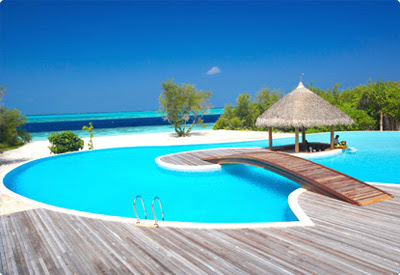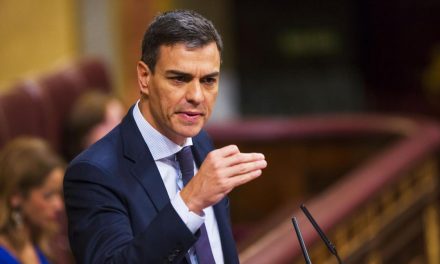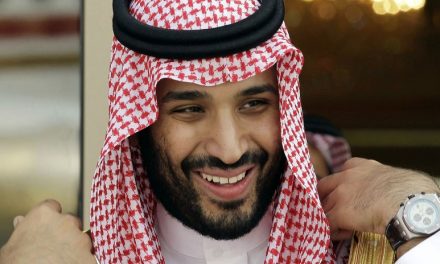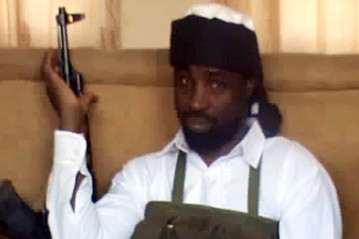
Maldives
5 March 2011. As the Maldives comes to grips with its own autocratic past, the scale of the former dictator’s malpractice has astonished observers: what a UK-based accounting firm found when probing the rule of Maumoon Abdul Gayoom and his family was a corrupt nexus that implicates the Burmese junta in a massive international scam. The accountants, Grant Thornton, discovered that the former president of the tiny island nation was receiving a large allocation of cut-price oil from the Muslim-dominated Organization of the Petroleum Exporting Countries (OPEC) cartel, channelled through a Singaporean branch of the Maldivian State Trading Organisation (STO). The scale of the $US800 million fraud was noted by a Maldivian government official to be not significantly different from the GDP of that country, $US1.4 billion. Ships carrying the oil from Singapore had records demonstrating that they embarked but never arrived in the Indian Ocean archipelago. Instead the vessels were selling on the bounty to international buyers on the black market, including Burma’s military junta. Among the companies who did business with the Maldivians was Kanbawza Bank, owned by Aung Ko Win, who is close to Burmese vice-general Maung Aye. Perhaps the business was being done on behalf of Maung Aye. Kanbawza was recently at the centre of a row over Burma’s flag carrier, MAI. The bank was started in Shan state by the then-unknown and apparently ‘asset-less’ teacher, Aung Ko Win, who happened to meet and befriend Maung Aye. The bank has grown to become one of the biggest and most important financial institutions in Burma from mysterious profits made in the Shan hills, once the world’s largest source of opium. The Maldives is given a special, cheap allocation of oil by OPEC because of the cartel’s preferential treatment for 100 percent Sunni Muslim nations, so the tiny island state under Gayoom would get a far larger allocation of oil than what the residents of the country needed. Gayoom and his half brother, Abdullah Yameen, set up a joint venture called Mocom Trading Pvt. Ltd., incorporated in 2004, to sell this allocation from Singapore. It was a joint venture between Mocom Corporation Sdn Bhd, a Malaysian company, and the Maldivian State Trading Organisation (Singapore), of whom Yameen is also the chairman. “STO Singapore appear to have purchased fuel from Shell Eastern, the Singapore Petroleum Company and Petronas, and then sold it to STO, its parent company, or to third parties,” the Grant Thornton audit says, indicating also that Mocom was set up specifically to sell diesel to Burma. “STO Singapore wished to sell oil to Myanmar, however as Mocom had the contract, it was agreed that STO Singapore and Mocom would form a joint venture, known as Mocom Trading Pte Ltd, incorporated in Singapore.” Indeed Mocom would have been enlisted specifically, being one of only four foreign companies, along with Korea’s Daewoo and Hyundai, and Malaysia’s Petronas, to supply Burma with petroleum products. The allegations also allege that books were “fudged” so that proceeds from the sales could be illegally siphoned off. “STO Singapore and Mocom Singapore each generated sales invoices addressed to Myanmar for each delivery showing the quantity of barrels delivered and the unit price. The content of the invoices are alike, except for the price per barrel,” the Grant Thornton report states. It adds however that from April 2004, the oil shipments to Burma “appear to have been discharged in the Maldives instead of Yangon, as per the sales invoices” and that “shipments invoiced to Myanmar may have been delivered to a third party”. Thus not only were the Burmese buying diesel that had been earmarked specifically for the Maldives by OPEC, but they appear to have been facilitating, through fraudulent paper work, its sale to other countries, thus allowing the Maldivians to cover their tracks. The Gayoom family is said to be well connected in Burma and allegedly holds strong links with Lo Hsing Han and his family, who own the Asia World Group. The powerful conglomerate takes on many lucrative construction contracts, including the running of public infrastructure. Moreover the company was allegedly built on the back of drug profits, with the US government’s Office of Foreign Assets Control (OFAC) terming Han “the godfather of heroin” and regional expert Bertil Lintner claiming “there is simply no other way” Asia World could have risen to its heights. Indeed the Grant Thornton report indicates that several sanctions listed companies owned by Lo Hsing Han’s son and his Singaporean daughter in law, Cecilia Ng, were also doing business with the Maldivian STO. These companies include Golden Aaron and S H NG Trading Pte Ltd which, invoices show, were only actively trading with the STO in 2002. The audit says that from 2001 to 2002, “revenue increased dramatically” to $US78.8 million, and then began to fall after 2006. Singaporean press in 2004 had indeed marvelled at how Golden Aaron, a mysteriously diverse and small company with a so-called specialisation in the import-export industry, could win large oil contracts in Burma. The main vehicle for the scam, the Maldives STO, is 92.29 percent owned by the Maldives state. Its Singapore branch was formed in 1997 and is primarily used for the purchase of petroleum products in the City State from companies such as Petronas and Shell Eastern, but with the OPEC discount. Its managing director from 1993 to 2008 was a man named Mohamed Maniku, of whom the audit reports: “We have reviewed various purchase invoices regarding [his] visits to Malaysia and Myanmar from the STO Singapore office, which clearly indicates that Mr Maniku was acutely involved in the STO Singapore oil strategy involving Myanmar and other third parties.” Indeed a trip to Burma was recorded in 1998, before which, on 30 April of that year, the Business Times reported him “seeking profitable international ventures”. This referred to an alleged lubricant deal with the Malaysia-based Stephen Hansford company. This preceded a trip to the country he made roughly two weeks later with Yameen. According to the New Light of Myanmar, they stayed for three days between 10 and 13 May, meeting with the Myanmar Import Export services and agreeing to purchase “parboiled rice”. The Gayoom regime, which had ruled the Maldives since 1978, was ousted in a 2008 election won by former political prisoner, Mohamed Nasheed. Indeed as the Maldivian President’s Member on the Judicial Services Commission (JSC), Aishath Velezinee, told the Minivan News recently, “Leaders of the former administration are continuing with criminal activities they have allegedly been carrying out for a long, long time”. She said that the raft of corruption allegations remained just allegations “because they have never come up before a court of law in all this time. There is widespread public perception that certain members of parliament are behind all the serious organised crime going on in this country. This includes serious drug issues, gang violence, and stabbings. It is a much discussed issue, but it has never come up in the courts. I can see now that perhaps it may be true – otherwise why prevent the formation of an independent judiciary? I don’t think they would have confidence that they would get away free”. Indian investigative journalist Sumon K Chakrabarti, who is writing a book about the Gayoom years, believes that drugs are a “huge issue” in the Maldives and that “a generation was lost to heroin.” The “eruption” of heroin there, as Gary Lewis of the UN Office of Drugs and Crime (UNODC) puts it, seemingly occurred in two stages: Maldivian government sources estimate that the drug first became available in the Maldives in the 1990s, largely seen to be of Afghan or Pakistani origin. But Lewis states that ‘China White heroin’, the vast majority of which is produced in Burma and which a senior Maldivian journalist says is now “common” on the streets of the capital, Male, first appeared around 2003. The date follows on the heels of the marriage between companies associated with Lo Hsing Han, SH Trading and Golden Aaron, and the Maldivian STO, as well as involvement from Kanbawza Bank, which is seen by economic commentators as an expert in the laundering business. Perhaps more pertinently, however, it’s also when “revenue increased dramatically”, as the audit notes. The chairman of the STO, Yameen, has also been explicitly accused by the Maldivian parliament of involvement in the heroin trade. Maldivian police refused to talk when contacted by DVB. Government officials, who requested anonymity, suggested they police be too scared to talk to the press, but noted that a large proportion of the country’s youths were heroin addicts. In 2002 all the Burmese companies involved, from the military-run UMECH to Kanbawza Bank and the two Asia World-linked businesses, paid commission to a man of Burmese origin named Myint Lwin Oo – in Malaysia, however, he is known as Kamal Bin Rashid, as is one of the directors of Mocom. The money was paid to a United Overseas Bank account in his name in Singapore. “It remains very unclear to us what STO Singapore’s role in the process had been, given that Mocom already had the contract to sell oil to Myanmar,” said the Grant Thornton audit. “It would have been more profitable for Mocom to set up a trading arm in Singapore and purchase the fuel itself, benefiting from all related profits.” It continues that the post-2005 decrease in the STO’s revenue may have been down to a change in the organisation’s structure after it became a joint venture, but added that “It is unclear why STO Singapore paid commission to Mr Rashid [Myint Lwin Oo] and on what basis.” So why did the Burmese companies, those associated with the narcotics industry, stop paying? Did payments go the other way as part of a “profitable international venture” of the STO’s then-director Maniku, and former chairman, Yameen?















